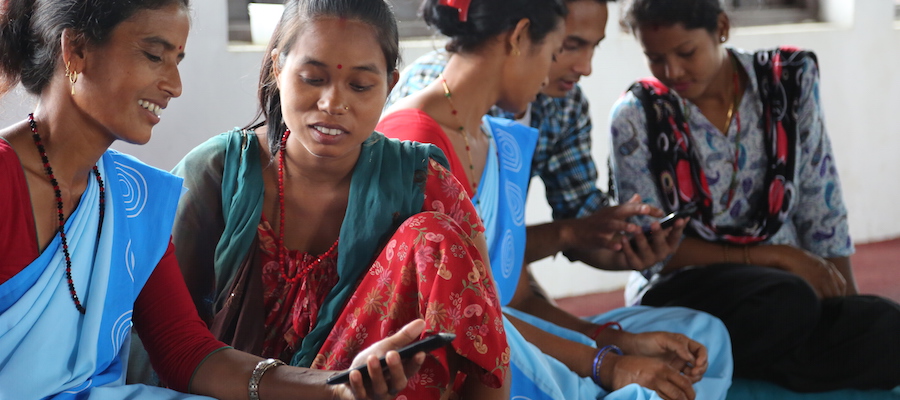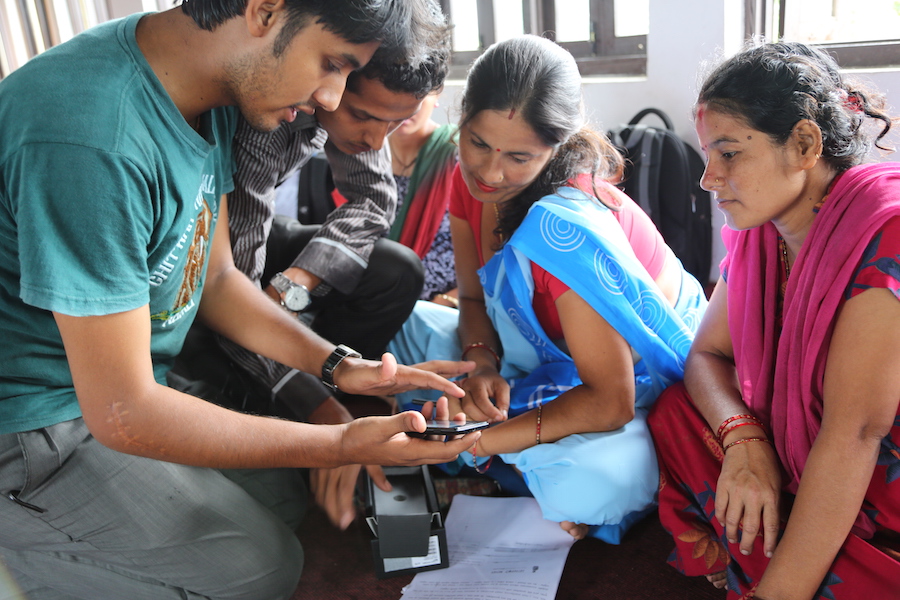
In Nepal, it is difficult for expecting mothers to regularly visit their doctors for prenatal health check-ups. They often have to travel a long way on foot to the nearest health clinic, sometimes across very rough terrain. These conditions also make it difficult for local health workers to keep track of patients.
Many Nepali women are unaware of the need for regular checkups, or of the precautions they should take during and after pregnancy to keep their babies and themselves healthy. Only 58.3% women receive prenatal care in Nepal.
One in 200 Nepali women will die in childbirth, often because they are not cognizant of the benefits of delivering their babies in a hospital. Sometimes, “poor and illiterate women will hide themselves in bushes” to give birth.
This past June, READ’s Jhuwani Community Library in Chitwan, Nepal, launched an innovative program using a mobile app that enables pregnant women to regularly access prenatal care.
The Jhuwani Library teaches pregnant women and local Female Community Health Volunteers (FCHVs) how to download and use an application on their mobile devices, called Aamako Maya (Mother´s Love).
Designed by a Nepali computer engineer, the program is a web application that allows health workers to track the stages of a woman’s pregnancy by providing regular information and updates via text. It also provides educational video and audio programs about prenatal care for the expecting mothers.

In an interview with Nepali media outlet eKantipur.com, Jhuwani Library Chair Keshab Acharya explained the process: the FCHVs first record the name, age, and contact details of the newly pregnant woman, along with the last date of her menstrual cycle. The data is then entered into the software program by trained volunteers, and automatically uploaded to the databases of the library, local health post, District Public Health Office, Health Ministry, and the central office of the Aamako Maya programme.
The data uploaded through the app helps pregnant women stay up to date on the stage of their pregnancy, know when to check in with their doctor (which they can do via mobile phone in some cases), and store information about their doctors.
If the women do not have a phone, or can’t use the app because they are illiterate, then their local health workers do it for them – the app notifies the health workers throughout the course of the pregnancies of several women they monitor.
Pabitra Shrestha, a pregnant woman who attended the program said, “[We never knew] that mobile devices and internet can be used to help pregnant women. We had to visit the health post and calculate our stage/time of pregnancy [on our own]. But now the application automatically provides us with the stage as well as relevant information to all the pregnant women. We can now call our FCHVs in times of emergency.”
Jhuwani Library is helping to produce additional educational content for the Aamako Maya application, including post-natal and infant care.
It is very common for new mothers to suffer from uterine prolapse in Nepal – a painful but preventable condition in which the uterus falls out of alignment after childbirth, often occurring when women begin lifting heavy weight and working in the fields too soon after giving birth. In 2014, Jhuwani Community Library created several educational audio and video clips that can be played via mobile phone or as radio programs to spread awareness about this issue (see our blog post on the program).
Read more about the Aamako Maya program on their website.



